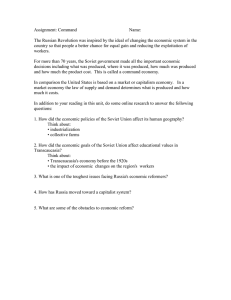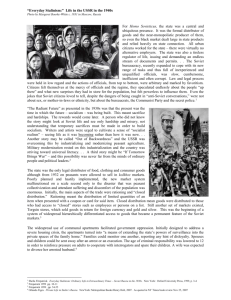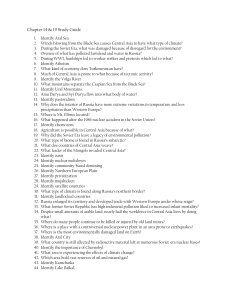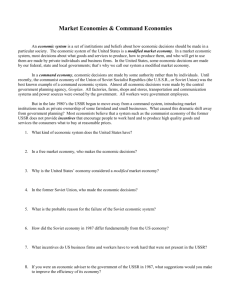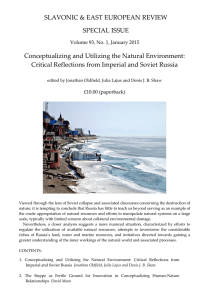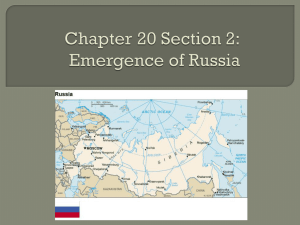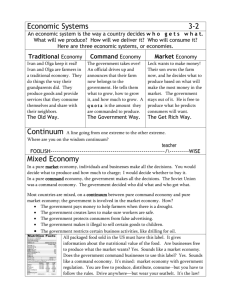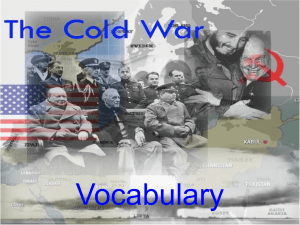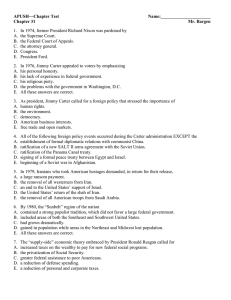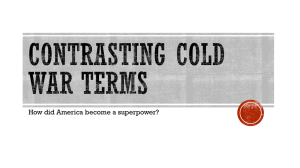CHAPTER 2 ECONOMICS TEST STUDY GUIDE Name: (15 points
advertisement
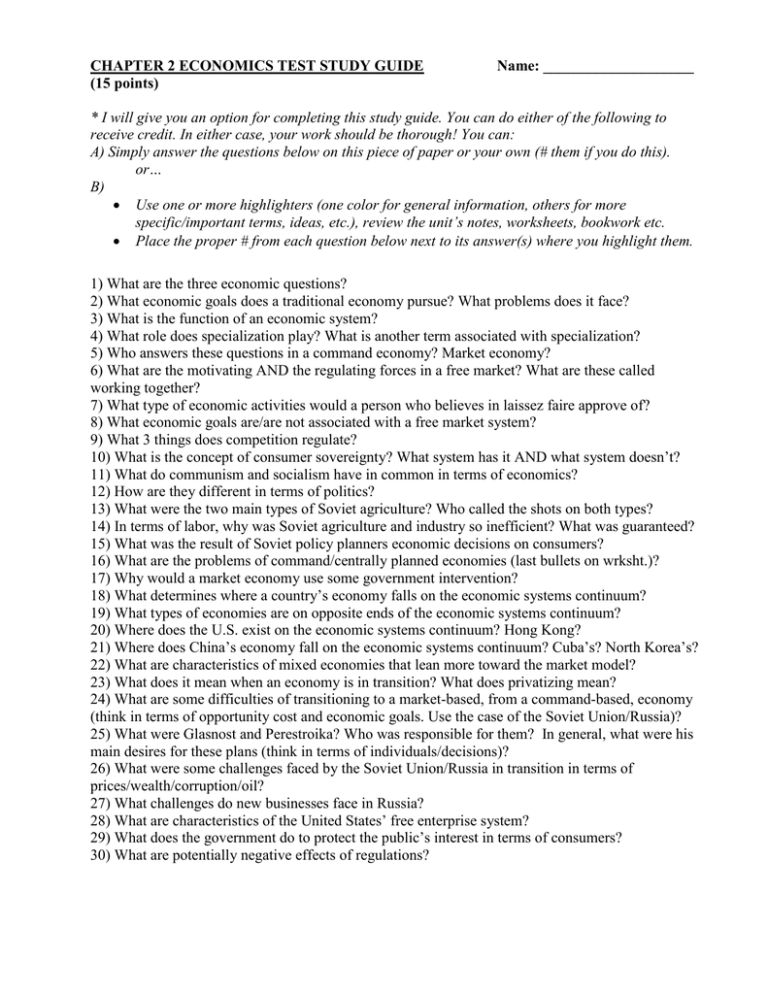
CHAPTER 2 ECONOMICS TEST STUDY GUIDE (15 points) Name: ____________________ * I will give you an option for completing this study guide. You can do either of the following to receive credit. In either case, your work should be thorough! You can: A) Simply answer the questions below on this piece of paper or your own (# them if you do this). or… B) Use one or more highlighters (one color for general information, others for more specific/important terms, ideas, etc.), review the unit’s notes, worksheets, bookwork etc. Place the proper # from each question below next to its answer(s) where you highlight them. 1) What are the three economic questions? 2) What economic goals does a traditional economy pursue? What problems does it face? 3) What is the function of an economic system? 4) What role does specialization play? What is another term associated with specialization? 5) Who answers these questions in a command economy? Market economy? 6) What are the motivating AND the regulating forces in a free market? What are these called working together? 7) What type of economic activities would a person who believes in laissez faire approve of? 8) What economic goals are/are not associated with a free market system? 9) What 3 things does competition regulate? 10) What is the concept of consumer sovereignty? What system has it AND what system doesn’t? 11) What do communism and socialism have in common in terms of economics? 12) How are they different in terms of politics? 13) What were the two main types of Soviet agriculture? Who called the shots on both types? 14) In terms of labor, why was Soviet agriculture and industry so inefficient? What was guaranteed? 15) What was the result of Soviet policy planners economic decisions on consumers? 16) What are the problems of command/centrally planned economies (last bullets on wrksht.)? 17) Why would a market economy use some government intervention? 18) What determines where a country’s economy falls on the economic systems continuum? 19) What types of economies are on opposite ends of the economic systems continuum? 20) Where does the U.S. exist on the economic systems continuum? Hong Kong? 21) Where does China’s economy fall on the economic systems continuum? Cuba’s? North Korea’s? 22) What are characteristics of mixed economies that lean more toward the market model? 23) What does it mean when an economy is in transition? What does privatizing mean? 24) What are some difficulties of transitioning to a market-based, from a command-based, economy (think in terms of opportunity cost and economic goals. Use the case of the Soviet Union/Russia)? 25) What were Glasnost and Perestroika? Who was responsible for them? In general, what were his main desires for these plans (think in terms of individuals/decisions)? 26) What were some challenges faced by the Soviet Union/Russia in transition in terms of prices/wealth/corruption/oil? 27) What challenges do new businesses face in Russia? 28) What are characteristics of the United States’ free enterprise system? 29) What does the government do to protect the public’s interest in terms of consumers? 30) What are potentially negative effects of regulations?

